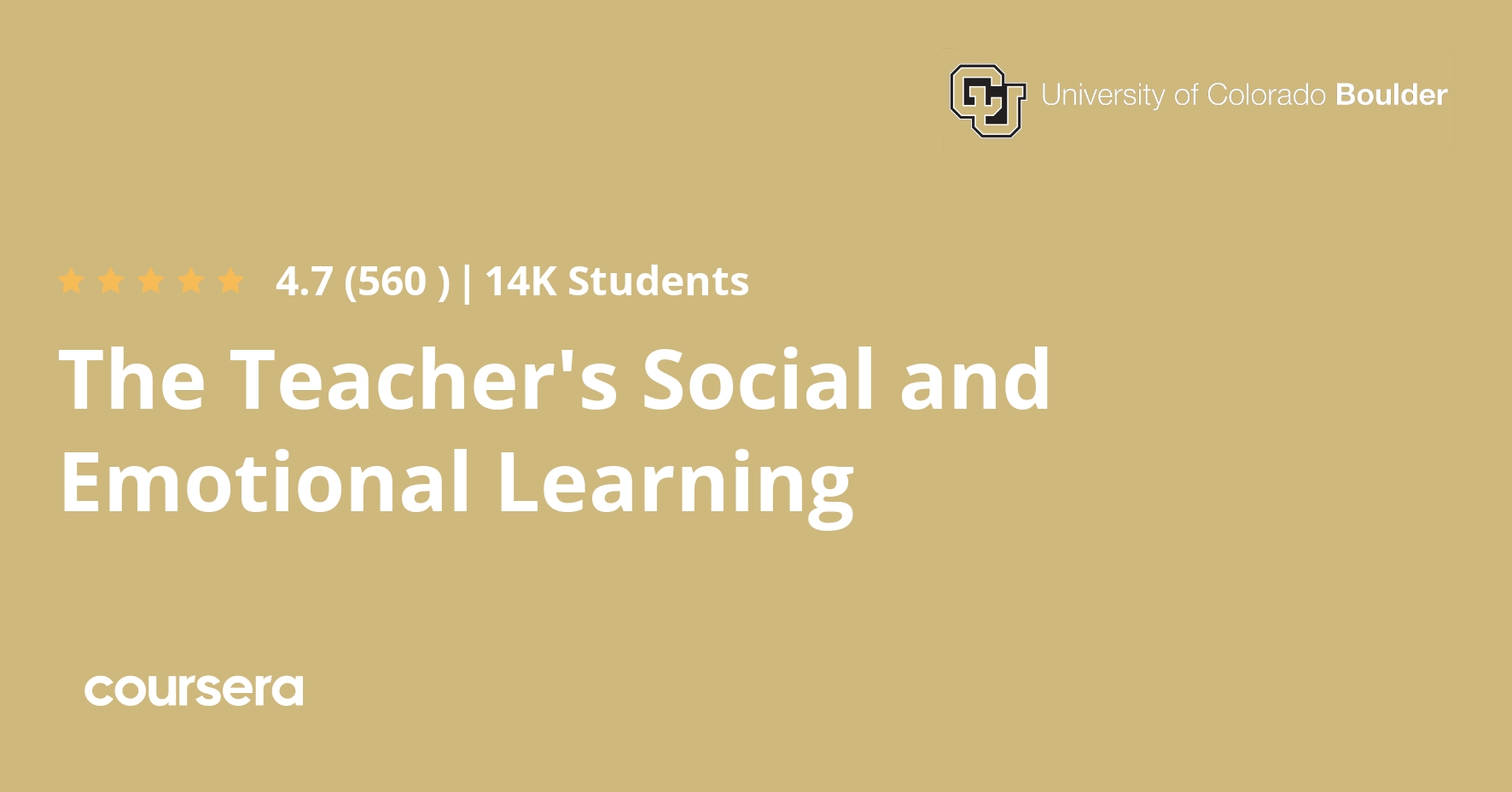Description
Social and emotional learning, or SEL, programs have flourished in schools during the last decade. While this growth has been impressive, inadequate attention has been paid to teachers’ social and emotional learning. In this course Dan Liston and Randy Testa introduce you to various rationales for why teacher SEL is needed as well as examine and reflect on various emotions in teaching and learning.
This course is a part of the 5-course Specialization “The Teacher and Social Emotional Learning (SEL)”. Interested in earning 3 university credits from the University of Colorado-Boulder for this specialization?? If so check out “How you can earn 3 university credits from the University of Colorado-Boulder for this specialization” reading in the first module of this course for additional information.
We want to note that the courses in this Specialization were designed with a three-credit university course load in mind. As a participant you may notice a bit more reading content and a little less video/lecture content. Completing and passing the SEL Specialization allows the participant to apply for 3 graduate credits toward teacher re-certification and professional enhancement. We want to ensure the quality and high standards of a University of Colorado learning experience.
Interested in earning 3 graduate credits from the University of Colorado-Boulder for The Teacher and Social Emotional Learning (SEL) Specialization? Check out “How you can earn 3 university credits from the University of Colorado-Boulder for this specialization” reading in the first week of this course for more information.
What you will learn
Why SEL and the teacher?
Here we introduce what SEL is and why it is important for all teachers. We elaborate the need for the teacher to enhance her/his knowledge of self, especially his/her own social and emotional terrain. A guiding premise is that deeper teacher self-understanding facilitates and enhances deeper student relations and greater chances for the transformative possibilities for student and teacher. A related premise is that by examining our deeply held cherished beliefs and emotional responses to situations and texts, we create opportunities for further insights into why and the ways we teach.
What does teaching do to teachers?
Here we further elaborate the need for the teacher to enhance her/his knowledge of self, especially his/her emotional responses as well as deeply held beliefs.
Sadness and despair in teaching
The value of reflection on and examination of sadness, despair, and related emotions in teaching is seen as one example of an enhanced “granularity” offered to teachers through reflection on emotions.
Joy, passion, and enjoyment in teaching
The value of reflection on and examination of joy and passion, as well as other related emotions in teaching is seen as another example of an enhanced “granularity” that can be gained by teachers through a reflection on emotions.



